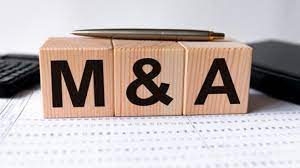The week has arrived! At the end of this week, the parties will have closed the transaction and you will have successfully sold your business. Sellers need to be prepared for this process both physically and emotionally, because it’s a milestone moment.
In terms of the mergers and acquisitions process, the negotiating has come to an end, and the attorneys are furiously working to finalize the documents and get them into the final form for signature. In addition to the purchase agreement, there are a handful of other documents that are typically delivered in connection with closing.
These “ancillary documents” are legal in nature, and usually serve one of two purposes:
- The first purpose is to carry out the actions required in the purchase agreement. This includes assigning contracts, transferring real estate, using a bill of sale to sell any physical assets, and signing any consulting or employment agreements for employees who will now work for the buyer.
- The second purpose of these ancillary documents is to provide documented assurances that the parties are in good standing, that the signers of the documents have authority to sign, that the respective companies’ boards, shareholders, or members have approved the transaction, or that there is no further tax due on the seller. For both types of documents, your attorney will handle the majority of the documents. That said, the seller and buyer should be available to answer last minute questions (i.e. who will sign, and what is their title?).
In the last 20 years, transactions have experienced a change in closing process due to the widespread use of electronic communication. Deal parties used to gather in large boardrooms with file folders of documents to be executed by all. Today, we typically exchange signature pages electronically, and buyers, sellers, and attorneys can all be in their respective locations or offices. That said, we always counsel our clients to be available, responsive to e-mail, and to have access to a computer and printer for purposes of signing documents during the days leading up to closing. You’ll also want to check your bank account when the wire transfers have been sent, the payoff you’ve been waiting for should be there!
All of the steps above detail the technical part of closing the deal, , but we often see and counsel our clients on the emotional implications of closing on their transaction. Sellers have worked for years to build their business, and it’s a complex and exhausting process to sell the thing they have poured their blood, sweat and tears into for an (often) significant part of their lives. We often see sellers who have a hard time considering what their new daily life will look like, and it doesn’t include running their company every day. We encourage sellers to think about their post-closing plans throughout the transaction, so that they’re prepared for closing. If there’s ever a day when you deserve a vacation, it’s definitely the day after your close on the sale of your business. We say cheers to you, your past success and your bright future!
If you’re considering a transaction and want more information or legal counsel, feel free to reach out to us! We’re prepared to meet your timeline and assist you in the sale of your company.





